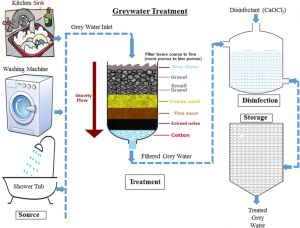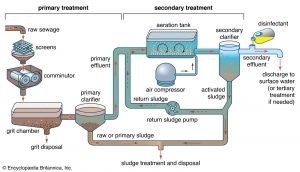Water treatment to maximize water usage
Hospital is one of the first in Bangalore city to have its own water treatment plant several years before it became mandatory. Fresh water is used for drinking, bathing and in wash basins. Then this water goes to sullage treatment plant and is recycled in sewage treatment plant for use in flushing tanks. Then this water is again recycled for use in the gardens.
Sullage treatment is a term used to describe treatment of wastewater that arises as a byproduct of daily human activities such as showering, washing dishes, and doing the laundry. It’s also commonly referred to as gray water. Much of this gray water can be recycled and reintroduced into the environment instead of just being disposed of. Environmental experts have claimed that reusing gray water will have a great beneficial impact on fresh water supply over time. It’s estimated that up to 80 percent of all household wastewater is sullage. Many see this as a waste of water that could potentially be reused. Ecological experts claim reusing wastewater is not only better for the environment, but will also be vital in solving the planet’s predicted water shortages. By reusing it, the population can lower the consumption of fresh water, replace vital nutrients in the soil, promote plant growth, and lower the amount of chemicals used in treatment plants.
Sewage treatment is a type of wastewater treatment which aims to remove contaminants from sewage to produce an effluent that is suitable for discharge to the surrounding environment or an intended reuse application, thereby preventing water pollution from raw sewage discharges.


